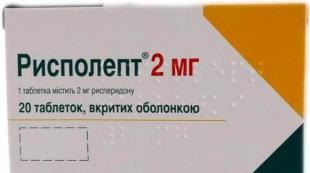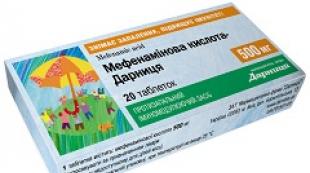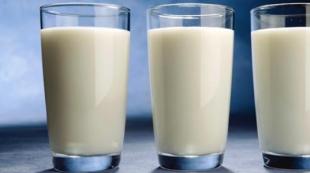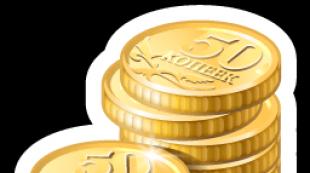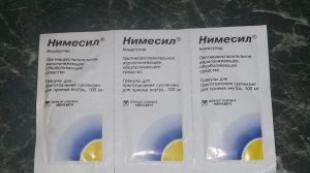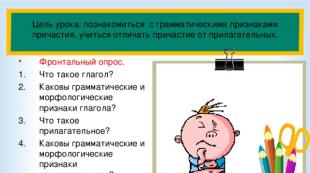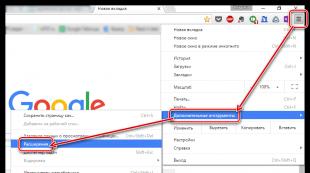Remedies for acne on the face at the pharmacy. Inflammation on the face: determine the causes, undergo treatment, provide care
Inflamed acne can occur in anyone. Small formations can be easily hidden with the help of cosmetics. But severe inflammation, especially on the face, can cause great inconvenience and discomfort.
Many people rush to eliminate a pimple without finding out why some areas of the skin become inflamed. It is important to determine the causes of this condition and the ability to quickly resolve the problem. After all, even if you manage to remove a pimple, it may appear again after a while.
Characteristics and causes of inflammation
Inflammatory processes on the skin can appear in any area of the body or face. The areas where the pimple appears are usually red, swollen, with purulent contents. Education often brings great pain.
The causes of inflammation are associated with the negative effects of pathogenic microorganisms. Bacteria feeding on sebum lead to changes in the functioning of skin tissue and glands, which causes severe discomfort.
Acne can be of several types. They differ in symptoms and severity. Among the formations there are:
- papules, which look like red spherical inclusions on the skin;
- pustules with a purulent sac and inflamed edges;
- nodes are large (more than 5 mm) formations with deep tissue damage and pronounced pain;
- cysts, which are the result of nodes not eliminated in time.
Under normal conditions, fatty secretions are removed through pores. When they are blocked, fat accumulates in the area of the hair follicles. They swell and become inflamed. It is these areas that become the most attractive to harmful bacteria that feed on sebum.
The rashes are most often localized in the face area. They often appear on the chin, forehead
Some people suffer from inflamed acne all over their body. Then formations appear on the back, arms, and neck.
Removal of the inflamed area
Many people, when a pimple appears on their face, look for ways to get rid of it. The easiest way to do this is during removal. You can seek help from a specialist at a beauty salon. However, if the inflammation is single, then removal at home is allowed.
This procedure cannot be used often. After all, you can injure the surface of the skin, which will lead to the appearance of red spots that will be quite difficult to remove. If a person nevertheless decides to extrude, the procedure should be performed subject to certain conditions.
- At the initial stage, it is necessary to cleanse the skin. You need to wash your face for a minute using tar soap. This will eliminate the influence of harmful bacteria.
- It is better to carry out the procedure using medical gloves. If they are not available, it is important to wash your hands thoroughly.
- You need to press gently on the pimple. When the water flows out, you can note that the pimple is not yet fully ripe. If purulent contents come out, then after its removal healing should occur soon.
- After eliminating the pimple, you should treat the damaged skin surface with alcohol lotion or antiseptic.
Quick relief of inflammation
In some situations, it is necessary to quickly relieve inflammation on the face. You can use some effective remedies.
- Before going to bed, you can apply eye or nasal drops to the pimple. Before use, they are cooled and applied to a cotton swab. The inflammation needs to be cauterized within a few minutes. Within half an hour, you can notice the elimination of redness and a reduction in the size of the pimple.
- You can wrap a piece of ice in gauze and apply it to the inflamed area. Cold constricts blood vessels, which leads to a decrease in redness.
- You can remove a pimple overnight using regular toothpaste. It has a drying effect and also disinfects the area of inflammation.
- A useful remedy is lotions with lemon juice. But it is worth remembering that the aggressive substance should not be used by people with sensitive, dry and allergic skin.

Ice helps quickly relieve inflammation and redness
Medications
Squeezing a pimple is a rather traumatic procedure for the skin. Therefore, after such exposure, a red spot may remain on the face for some time.
If you need to get rid of a pimple quickly and without consequences, you should use medications.

An effective acne remedy - salicylic acid
- Before going to bed, cauterization of the pimple with salicylic alcohol is allowed. It disinfects the surface of the neoplasm and also dries the affected area. Alcohol is applied to the skin using a cotton swab.
- You can relieve inflammation using Baziron gel. It not only exfoliates old skin, but also normalizes the functioning of the sebaceous glands.
- The positive properties of chatterbox have long been known. It is made on the basis of Levomycetin (10 tablets), boric acid (50 ml), septyl (50 ml). After mixing, the composition is stored in a glass bottle. It can be used 15 minutes after preparation. The solution is applied to a cotton pad, which can be used to wipe your face throughout the day.
- You can relieve acne inflammation with Zenerite. It is made with the addition of zinc and erythromycin. Zinc has a drying effect, and erythromycin eliminates the inflammatory process. After using twice a day, the redness goes away.
- Cleansing and disinfection of the skin on the face is carried out using Chlorhexidine. It is applied to a clean face twice a day using a cotton swab.
To completely relieve inflammation, it is necessary to carry out comprehensive and regular treatment. Therefore, medications are prescribed by a doctor after examining the patient.
ethnoscience
You can remove inflammation on the skin using traditional medicine. They have long established themselves as effective ways to eliminate acne.
Agave can be applied to the affected skin surface. The plant leaf is thoroughly washed and cut into two parts. One of them is used as a lotion. The procedure is carried out until the inflammation completely disappears.
A cheap and accessible remedy, proven over the years, is calendula tincture. It clears clogged pores and eliminates inflammation. The solution is applied to a cotton swab. Then you need to apply it to the pimple. You need to repeat the lotions until the inflammation disappears completely.
Skin affected by harmful bacteria can be treated with iodine. It disinfects the surface of the skin. The pimple heals instantly under the influence of the solution components.

Iodine should be applied pointwise using a cotton swab.
You should be careful when using iodine. If you exceed the dosage, peeling and burns may occur. It is better to use the solution before bed so that the iodine is completely absorbed during the night and does not leave a brownish-yellow tint on the skin.
You can relieve inflammation with the help of Melaleuca tea essential oil. 2 drops of the product are diluted in a teaspoon of water. After preparing the composition, you need to anoint the pimples, which disappear after several applications.
Masks
You can relieve the inflammatory process on the surface of the skin with the help of masks. Among all other drugs and methods, they are the most effective.
At home, you can easily prepare a mask based on oatmeal. To do this you will need to take:
- oatmeal (1.5 tablespoons);
- peppermint (1 teaspoon);
- melted honey;
- water.
After mixing the components in water, honey is added to the composition. You can make a mask after cleansing the skin, applying it to the surface of the face for 20 minutes.
A white clay mask will be useful. To prepare it, a tablespoon of the dry composition is diluted in a tablespoon of water. You can add melaleuca tea essential oil (a few drops) to the mixture. You need to keep the mask on your face until it dries completely. After this, it is washed off with warm water.

A white clay mask allows you not only to get rid of inflammation, but also to normalize the fat metabolism of the skin and the functioning of the sebaceous glands
Inflammation can be treated using a composition based on:
- activated carbon;
- aloe juice;
- essential oils;
- sea salt.
It is also allowed to apply soda paste to the inflamed areas. It is important not to apply it on healthy areas.
If a single pimple appears on your face, you can use any of the suggested remedies. In the case of a large area of localization of the inflammatory process, you need to consult a doctor. He will help identify the causes of disorders and prescribe treatment.
The modern pharmaceutical market presents a huge selection of drugs against gum inflammation. Not all of them are equally effective, but most of them help alleviate the patient’s condition and help get rid of the symptoms of inflammation. We invite you to familiarize yourself with the most popular drugs.
- Periodontocide;
- Maraslavin;
- Polyminerol.
A series of products is very popular among Russians "Periodonticide", intended for both the prevention and treatment of inflammatory diseases. Preparations from the “Parodontocide” series are intended for the treatment of:
- and other inflammatory gum diseases.
Preparations of the “Parodontocide” series are available in the form of a rinse solution, spray, and toothpaste. This is an effective anti-inflammatory agent for gums, which contains sage, mint, clove oils, thymol, phenyl salicylate, eugenol, sodium fluoride. Thanks to this composition, the remedy for gum inflammation “Parodontocide” has an analgesic, refreshing, bactericidal, and anti-inflammatory effect. In order for the effect to be maximum, all medications in the “Parodontocide” series should be used consistently.
An equally popular and effective cure for gum disease is the Bulgarian drug "Maraslavin". It comes in the form of a rinse and lotion. The composition includes herbs wormwood, savory, clove buds, black pepper fruits, zingiber rhizomes. Thanks to them, the medicine has a pronounced anti-inflammatory, antimicrobial, analgesic and antiallergic effect. "Maraslavin" is widely used in modern dentistry
- in the treatment of hemorrhagic and purulent forms of periodontal disease;
- in complex therapy of gum diseases;
- as well as after surgical treatment of periodontal disease.
Recently, a remedy for gum inflammation has been in demand among buyers. "Polyminerol". It comes in the form of a rinse solution. Thanks to its special composition, “Polyminerol” is an effective remedy for combating the manifestations of the inflammatory process, improves tissue regeneration, reduces bleeding, and has an analgesic effect. "Polyminerol" is prescribed for the treatment of:
- gingivitis;
- periodontopathies;
- periodontal disease;
- periodontitis;
- gingivostomatitis;
- and also for the prevention of inflammatory diseases.
Antibiotics
We will answer right away: in case of complex advanced forms of gum inflammation, it will most likely not be possible to do without taking antibiotics. The advanced form causes intoxication of the entire human body, and sometimes in order to relieve symptoms, it is necessary to take antibiotics. For example, penicillin antibiotics help stop the process and bring it under control.
However, under no circumstances should you self-prescribe antibiotics, as they have side effects, and incorrectly prescribing antibiotics can lead to very disastrous consequences. Therefore, you should take antibiotics for gum inflammation only as prescribed by your dentist.
Antibiotics are available in various forms:
- tablets;
- capsules;
- in the form of a gel or rinse solution.
Which drug and in what form is best for you to take can be decided after a thorough examination of the patient’s oral cavity.
Antibiotics in the form of tablets for inflammation are usually prescribed for periodontitis, as well as for other severe advanced forms. Antibiotics in the form of antiseptic solutions are prescribed after brushing your teeth, their purpose is to reduce the number of bacteria in the oral cavity.
Antibiotics should be taken strictly as prescribed by your doctor. Taking antibiotics incorrectly can lead to:
- allergic reactions;
- dysbacteriosis;
- diarrhea;
- gastrointestinal disorders.
Therefore, never take a drug that was prescribed not to you, but to your friends - perhaps this drug is not suitable for you at all.
Ointment
To treat inflammatory diseases, not only antibiotics and rinses are used, but also all kinds of ointments that help cope with the symptoms of the disease. Anti-inflammatory ointment for gums allows you to:
- quickly and effectively relieve gum pain;
- reduce its bleeding;
- relieve itching.
In this case, the ointment acts locally, directly on the sore spot.
A very effective drug is an ointment against gum inflammation. "Solcoseryl". It promotes the healing of cracks and wounds, preventing the development of the inflammatory process.
Ointments are also very effective "Metrogil" And "Apident-Active". They have not only anti-inflammatory, but also antiseptic and analgesic effects.
To treat inflammation, topical medications are most often prescribed.
Firstly, they are the most harmless in terms of their influence on the general condition of the human body and do not cause side effects (except perhaps allergic reactions, and even then in exceptional cases).
Secondly, topical drugs act directly on the area that hurts.
The most common form of topical products is anti-inflammatory gel for gums (). It is easily applied to the gums, has an analgesic effect, and stays on the gums for quite a long time, forming a protective film that significantly prolongs the healing effect of the medicine.
Pharmacies today offer a wide selection of various gels for gum inflammation, we list the most popular of them:
- Dental;
- Metrogyl denta;
- Solcoseryl;
- Holisal;
- Parodium;
- Kamistad;
- Asepta.
For inflammation of the mucous membrane, gum gel is a very effective remedy. "Dental". It promotes healing and has an analgesic effect.
A truly unique product is the gel "Metrogil-denta". It helps relieve inflammation, itching and pain.
Gel is perfect for treating acute forms. "Solcoseryl", it helps heal cracks and wounds, relieves inflammation, and has an anesthetic effect.
Also quite effective medicine for gum inflammation are gels "Holisal", "Parodium", "Kamistad", "Asepta" and others. As we can see, in the modern Russian pharmaceutical market everyone can choose the most suitable drug for themselves. Just do this not on your own, but under the supervision of an experienced dentist. And then the health of your teeth and gums is guaranteed for many years.
Happy is the one who is not affected by inflammatory skin processes on the face. Painful and terrible-looking inflammation on the face can overtake any of us at any age.
Pimples, acne, redness and irritation are not only a property of adolescence: there can be many reasons for their occurrence. If the cause is correctly identified, the course of treatment will go much easier and faster. Only a doctor will tell you how to remove inflammation on the face forever; you can only help him in carrying out effective treatment.
If you experience inflammation of the skin on your face, try not to panic, but to sensibly analyze your lifestyle and understand what could have caused this:
- infection: harmful microorganisms enter the skin and cause inflammation, which most often manifests itself in the form of herpes or furunculosis;
- allergic reactions;
- thermal inflammation occurs as a result of frostbite or burns: this is especially common among lovers of solariums and southern beaches;
- injuries as a result of unsuccessful cosmetic procedures or attempts to squeeze out a pimple at home;
- hormonal changes/disturbances in the body;
- weakened immunity;
- poor nutrition;
- long-term use of potent medications (antibiotics or hormonal drugs);
- stress and depression.
Having found out and eliminated the cause, it will be much easier to get rid of inflammation on the face.

Rules for caring for inflamed skin
If inflammation occurs on the face, treatment is mandatory. Do not engage in home experiments: they can end very badly. You can only support the prescribed course of treatment with proper care for inflamed skin:
- Do not self-medicate.
- Eat less smoked, fried, sweet and fatty foods. Increase the amount of fresh fruits and vegetables in your diet.
- Try not to touch the inflamed area with your hands, and especially not to squeeze anything out.
- Do not injure your skin with harsh scrubs. Cleanse your skin only with special gels for sensitive and problematic skin.
- Wash your face daily with warm, or better yet, cool water or cooled chamomile infusion. Avoid hot baths.
- Twice a week, take steam baths with chamomile infusion or with the addition of essential oils.
- Try any folk remedy (including homemade masks) against inflamed skin first on your wrist: apply it to the skin and wash off after 15 minutes. If there is no characteristic redness or itching, you can try it on your face.
- Before applying the mask, it is better to steam the skin.
- You may need to take a multivitamin complex to protect the immune system and strengthen the nervous system.
All these rules will help ease your condition. If you also take care to eliminate the cause that provokes inflammation, things will get better. But only a doctor will tell you how to relieve inflammation on your face, but it’s already in your power to help him.

The best recipes for homemade masks against inflammation on the face
At home, you will always have anti-inflammatory products and herbs on hand that will soothe irritated skin, promote faster healing and act as natural antiseptics. Using them as ingredients for homemade masks, you can remove pimples, blackheads, and red inflammations on the face in the form of individual spots and bumps.
- Parsley ice cubes
Chop a bunch of parsley, pour a glass of boiling water, leave for half an hour in a warm place, strain and pour into molds to form ice. After hardening, gently wipe the problem area with an ice cube.
- Complex anti-inflammatory mask with copper sulfate
Mix grated raw potatoes (100 g) with egg yolk, add lemon juice (one tablespoon), cold-pressed olive oil (one teaspoon) and copper sulfate (on the tip of a knife). After 20 minutes, this mask should be washed off with water acidified with lemon juice.
- Anti-inflammatory mask based on white clay
Mix white cosmetic clay (5 g) with talcum powder (5 g) and dilute with milk (2 tablespoons). To stir thoroughly.
- Cherry mask against inflammation on the face
Mix the pulp of ripe cherries in equal quantities with starch.
- Tea tree oil lotions
Everyone knows about the healing properties of essential oils. If you are concerned about inflammation on your face, you should definitely have tea tree essential oil on hand, which has pronounced anti-inflammatory and antibacterial properties. It is applied locally to the inflamed area 3-4 times a day.
The complex effect of drug treatment and cosmetics will help quickly relieve inflammation on the face, and normalizing a healthy lifestyle will save you from this scourge forever.
Red spots or a rash on the face do not appear by chance - these symptoms indicate irritation and there are a huge number of reasons for its occurrence. We will help you figure out what caused the irritation and tell you how to deal with it.
When it appears on your face rash and irritation- this is, to say the least, uncomfortable. Needless to say, this causes unpleasant pain and, indeed, spoils your mood and appearance. Such a problem undermines self-confidence and can disrupt the usual way of life.
The causes and consequences of irritation on the face are completely different, it may be as a reaction to cold or heat, and a symptom of serious diseases. The appearance of rashes on the face should always be taken seriously; it is always better to play it safe and consult a doctor.
Irritation on the face in the form of red spots: causes
Most often, irritation in the form of red spots on the face appears on the sensitive skin of women and children. The reasons for this unpleasant phenomenon the most varied:
- Reaction to exposure to direct sunlight. The sun is very harsh on the skin, which can lead to red spots on the face.


- Reaction to cold. In the cold season, during frosts, the appearance of red spots on the face is also a common occurrence.
- Sudden changes in temperature. For example, when you come out of the cold into a hot and stuffy room. But the appearance of such spots on the face is not dangerous; they will soon go away on their own. In order to avoid their appearance in the cold season, you need to use a rich, nourishing face cream.
- Nervous stress can also lead to red spots on the face
- Seasonal vitamin deficiencies, when the skin simply does not have enough nutrients, it also reacts with red spots. This problem can be eliminated with a varied daily diet: vegetables, fruits and multivitamin complexes.
- Fungal diseases also cause redness on the face. A red spot may be the only symptom of a fungus. Such red spots are distinguished by the presence of clear contours and the lack of effect from the use of moisturizers
- Infectious diseases. At the onset of the disease, redness on the skin may be the only symptom of measles, chickenpox, rubella and herpes
- Allergy for food products, medicines, cosmetics. As a rule, the cause of red spots on the face is easy to establish, since the spots appear soon after consuming a particular food or medication
- Oily skin. In the skin, the sebaceous glands of which secrete an excess amount of oil, all conditions are created for the proliferation of microbes and the appearance of red spots, pimples and acne. In this case, you need to use products that regulate oily skin, but it is best to consult a dermatologist
Irritation on the face in the form of small pimples: causes
Irritation in the form of small pimples on the face can be inflamed or not.

 Irritation can manifest itself in different ways - in the form of a rash. spots or peeling
Irritation can manifest itself in different ways - in the form of a rash. spots or peeling Basic reasons for this problem:
The causes of redness and peeling on the face can be:
- Internal factors
- diseases of internal organs
- allergic dermatitis
- fungal infections
- viral diseases
- bacterial diseases


- External factors
- Stress
- Cold
- Warm
- Radiation
- cosmetical tools
- mechanical damage to the skin during shaving
- dry skin
Allergic irritation on the face
Allergic irritation on the face differs from all others, primarily by itching. An allergy on the skin of the face may look like:
- like red spots with clear or blurry edges
- small pimples
- crusts due to scratching
- swelling of lips, nose, eyes


If after eating food, taking medications or using new cosmetics you have itchy rash on face– consult a doctor immediately. He will help determine the exact cause of the allergy and select the appropriate treatment.
Allergic irritation on the face is treated with tablets, injections, ointments and creams that contain antihistamines. They help relieve swelling, itching, redness and eliminate the causes of allergies.
Video: Allergy on the face: what to do?
Facial irritation after shaving
Many men face the problem of irritation after shaving. Reasons for this phenomenon the most varied:
- dry and sensitive skin
- shaving too often
- using razors and razors with dull or insufficiently sharp blades
- not using moisturizers after shaving
- allergy to shaving products

 The skin must be prepared before shaving and moisturized after shaving.
The skin must be prepared before shaving and moisturized after shaving. Removable during shaving top layer of epidermis, which is essentially a skin injury. The layer of skin that is exposed after shaving is thin and sensitive and can be easily influenced negative environmental factors– temperature, pollution, microbes. Due to all these reasons, we see redness and small pustules on the skin after shaving.
To avoid irritation on the skin of the face After shaving you should always:
- Use special shaving products with moisturizing ingredients - foams, gels
- Never use soap for shaving, as it dries out the skin, exposing it to even greater trauma and irritation.
- Always use sharp, reusable razors or new disposable razors.
- Never use other people's shaving products. Only use your razors, razors, etc. personally. This way you will protect yourself from contracting all kinds of infections - from a common fungus to HIV
- You should always use moisturizer after shaving. It will help reduce the likelihood of skin irritation
- Before using a razor or disposable razor, wash it with alcohol, antiseptic, or simply dip it in a glass of boiling water.
Video: How to get rid of irritation after shaving?
Irritation on the face after hair removal and depilation
Absolutely all representatives of the human race, both women and men, have small hairs above the upper lip and on the face. Some of us were “rewarded” by nature antennae that are noticeable, and every self-respecting woman strives to exterminate them. The procedure is not pleasant, but beauty requires sacrifice.


By deciding on such a tough procedure, you expose yourself to the risk of developing irritation in place of unwanted hair.
Often after hair removal on the face, irritation appears due to improper preparation for the procedure or due to neglect of skin care products after hair removal. Also, one of the reasons may be individual intolerance to any components of hair removal products.

 If you prefer to shave off excess on your face, then do not forget that the razor should be sharp and not “dry” shaving.
If you prefer to shave off excess on your face, then do not forget that the razor should be sharp and not “dry” shaving. If you decide to remove the mustache above your upper lip or any other excess hair on your face, follow simple rules, To avoid irritation, which will attract even more attention:
- It is best to epilate on a steamed face. It is ideal to do this after a hot shower. You can simply wash your face well several times with warm water and a scrub.
- You need to completely relax your facial muscles, so it’s better not to do this procedure yourself.
- Apply wax or sugar according to hair growth. This way the sensitive skin of the face is less damaged and hairs are removed better
- You need to remove the strip with a sharp, one-step movement.
- After the procedure, be sure to remove any remaining wax or oil with a special napkin soaked in essential oils. After this, it is necessary to treat the skin with an antiseptic without alcohol, or chlorhexidine. Tea tree oil can also be used as an antiseptic.
- Do not use soap or cleansing gels for 24 hours after the procedure. It is best to cleanse your skin with a soothing toner or lotion.
- For facial hair removal, it is best to purchase hypoallergenic wax strips or do this procedure using sugaring, since with it the likelihood of irritation is much lower
Irritation on the face from cosmetics
When buying cosmetics, we all hope that they will bring us only benefit and beauty. But, alas, this is not always the case. Very often, instead of healthy, beautiful and moisturized skin, we get irritation, peeling and acne on the face.

 Poor-quality or expired cosmetics, individual intolerance - causes of irritation on the face
Poor-quality or expired cosmetics, individual intolerance - causes of irritation on the face Allergies are very common for decorative cosmetics– lipsticks, mascara, eye shadow, foundation, powder, etc. Here, both sensitivity to the components of the cosmetic product and mechanical sensitivity play a role. clogged skin pores, which leads to inflammation and pimples.
Irritation from cosmetics may occur as:
- Peeling skin
- Skin redness
- Small pimples and pustules on the skin
- Itchy skin
To avoid allergies to cosmetic products, you should always carry out sensitivity test, you will find instructions for its implementation in any insert for the cream or powder. Usually, it is suggested to apply a small amount of the product on the bend of the elbow, since the skin there is the most sensitive. If in 12 hours If no redness, itching or rash appears, then you can use this remedy.


You should also remember that you should not buy cosmetics from dubious companies, cheap products and fake brands. Always read the ingredients before using cosmetics, as they may contain additives to which you are hypersensitive or allergic.
Be sure to choose cosmetics for your age and pay attention for expiration date, do not use expired cosmetics under any circumstances.
If you still experience irritation from a cosmetic product, you should immediately remove it from the skin, wipe your face with a soothing hypoallergenic toner. You should no longer use this particular product or other cosmetics. by means of this manufacturer. It would also be a good idea to consult a doctor to select the right treatment.
Facial irritation from sweat
Some people get sweat on their face from their own sweat. irritation, dry skin and acne. This is due to individual sensitivity to salts and other substances secreted by the sweat glands.


This is most often observed in people with hyperhidrosis– a disease in which sweat is released in very large quantities and this significantly spoils life.
To treat irritation on the face of this kind, you need to contact see a dermatologist, only he can prescribe the correct treatment in this case.
Irritation on the face in children and infants: causes
Children, and especially infants, most of all susceptible to facial irritation. Children's skin is very thin, delicate and sensitive, so it can react to any adverse effects with a rash and irritation.
Causes of irritation on the face of children the most diverse - from physiological mechanisms of adaptation to infections:
- So called milia– a small whitish or yellow rash on the baby’s cheeks, nose, and chin. Appears from the first days of life and goes away on its own. Is a sign of the child’s adaptation to the environment


- Acne, also happens in newborns. As in adults, it is associated with hormonal imbalances, but in children it only indicates that the child’s hormones are being produced and are beginning to function correctly. This rash in a child goes away on its own within a few weeks. If newborn acne lasts more than a month, this is a reason to consult a doctor.
- During teething Children often experience irritation on the chin in the form of redness. The fact is that during teething, the secretion of saliva sharply increases and, due to constant humidity and irritation of the skin, a rash appears on the chin
- Seborrheic dermatitis- another disease of infants, in which a rash appears on the scalp and forehead in the form of yellow, flaky scales. This irritation disappears on its own, up to a year of the child’s life.


- Heat rash of infants– a small rash in the form of red pimples on the neck and in all natural folds. Indicates that the baby is overheated. If you dress and cover your child according to the ambient temperature, this rash will go away quickly
- Allergic diseases(atopic dermatitis). A disease that appears in children under six months of age. It manifests itself as an itchy rash on the face and scalp. This is due to hereditary allergies or errors in the nutrition of a nursing mother (egg whites, cow's milk). This rash spreads to the head, neck, and, in older age, to the arms, legs, and torso.
- Infectious diseases– scabies, measles, chickenpox, staphylococcal and streptococcal infections
If any rash appears in your baby you should immediately consult a doctor for a full examination and identification of causes.
How to remove and calm irritation on the face?
Facial irritation can bother anyone. Therefore, you must always be prepared quickly and decisively to deal with such an unpleasant problem. There are many ways to deal with facial irritation, depending on the reasons:
- for allergic irritations of the facial skin - special ointments and creams with antiallergic components


- for infectious skin lesions - antibacterial ointments, creams, tablets, injections
- For irritation after shaving and hair removal– soothing and tonic lotions
- When irritated due to lack of vitamins or poor nutrition– correction and balancing of the diet
- Universal means are face masks with soothing ingredients, decoctions of medicinal herbs and other traditional medicine
If you are using it to cleanse your face alcohol-containing tonics, it is better to forget about them during irritation. Alcohol will further irritate damaged skin. Choose neutral tonics, lotions and cosmetic milks that contain anti-inflammatory and softening components.


Do not wash irritated skin soap, it will dry it out and this can aggravate the irritation. Avoid applying irritation to irritations iodine and brilliant green– they will only leave burns on damaged skin.
Can be used as an antiseptic chlorhexidine solution, it does not have an aggressive effect on the skin and will prevent infection.
Face masks that relieve irritation
It is best to prepare masks to relieve irritation at home. They definitely will not contain preservatives or dyes, which can aggravate irritation.
Mask with honey and egg yolk
The mask is very good for dry skin. The main thing is to check if you have allergic reaction to honey and yolk. To do this, make a mask and apply a small amount to the bend of your elbow. If itching and irritation do not appear within 2-4 hours, then you can safely use a homemade mask.


You will need:
- Natural honey – 1 tbsp
- Egg yolk – half
- Vegetable oil, preferably olive oil – 1 tbsp
Mix all ingredients. Apply a thin layer to your face, leave for 10-15 minutes. While the mask is on your face, it is better to lie down and relax. Wash off the mask with warm water or chamomile decoction, which is also very good for irritated skin.
Oatmeal mask
An excellent option for oily, irritated skin. To prepare a rescue mask you will need:
- 2 tbsp. tablespoons chopped oatmeal
- 2 tbsp. spoons of low-fat kefir
Mix all ingredients, apply to face, leave for 15 minutes. Rinse with warm water or chamomile infusion.


Herbal mask
A universal remedy for all skin types with irritation. For the mask you will need the following components:
- Stinging nettle leaves - 1 tbsp. spoon
- Plantain leaves - 1 tbsp. spoon
- Lemon juice, half diluted with water - 1 tbsp. spoon


For this mask, it is best to use fresh plant leaves. Grind the leaves into a paste, dilute with lemon juice and apply to face for 10-15 minutes. Rinse off with warm water.
After all face masks should be applied to the skin of the face. hypoallergenic nourishing cream. It is best to make masks 1-2 times a week for a month.
Video: Mask against irritation on the face
Ointment for itching and irritation of the skin on the face
Depending on the cause of irritation and itching, you can choose a huge number of ointments. It is best to use ointment only after consulting a doctor.
Basically, the following active ingredients are used in ointments against itching and irritation:
- Antihistamines
- Antibiotics
- Antiviral drugs
- Antifungal drugs
- Steroid hormones
- Local painkillers
- Panthenol
- Menthol
- Tea tree oil
- Carbolic acid
- Tar
- Citric acid and other products


In addition, ointments for itching and irritation contain oils and emollients.
The final decision on the use of a particular ointment should be made only by Therapist. Under no circumstances use ointments with antibiotics and steroid hormones on your own - this can only worsen the condition.
Cream for facial irritation
It is better to use creams for irritation on the face those with dry skin. Depending on the reasons that caused the irritation, the cream may contain the same components as the ointments. Anti-irritation creams differ from ointments in the large number moisturizers and nutrients.


Important: just like with ointment, the final decision on the use of anti-irritation cream in a particular case is made by the doctor.
Medicines from the pharmacy for skin irritation
- Ointment "Radevit"– effectively relieves irritation, eliminates its cause and cares for damaged skin, accelerating its healing
- Triderm ointment— contains antiallergic substances that effectively eliminate skin itching. Used for allergic dermatitis, infectious skin lesions, eczema, lichen
- "Psilo-balm"- relieves pain and cools skin damaged by irritation. Relieves itching, relieves irritation. Used for allergies, atopic dermatitis
- "Gistan" ointment or cream. Relieves itching and inflammation. Improves skin regeneration and relieves swelling.
- "Johnson's Baby" cream and ointment used for skin irritation in children
- "Skin-up"- ointment, aerosol. Contains zinc, antimicrobial and antifungal components. Relieves itching, improves skin healing, relieves inflammation, intensely moisturizes
- "Fenistil" gel with antiallergic components. Relieves itching and restores skin
- "Lanolin" solution or cream - softens the skin, reduces pain, soothes irritation
- Zinc ointment- a well-known and accessible remedy. Helps well with minor skin lesions, acne, diaper rash in children
- Panthenol– heals well, relieves inflammation, softens and moisturizes the skin. Can be used in children


Folk remedies for facial irritation
In folk medicine, there are many simple remedies that effectively relieve irritation on the face.
Chamomile and nettle decoction
Take 1 tbsp per glass of water. spoon of chamomile and nettle. Pour boiling water over it. Let it brew for several hours. Wash your face with this decoction morning and evening.
You can also freeze this decoction and wipe your face with an ice cube in the morning and evening.


Celery leaf lotions
They have an anti-inflammatory effect. Just chop a celery leaf into a pulp and apply to problem areas for 15-20 minutes.
Cucumber
Regular cucumber relieves facial skin irritation well.
- Just grind it into a paste and apply it to your face
- Leave for 15-20 minutes and rinse with water
- Repeat the procedure 1-2 times a day
Sea buckthorn remedies
Inflammations on the skin can be wiped with sea buckthorn decoction, sea buckthorn tincture or sea buckthorn ointment. All these products are widely available and sold in any pharmacy.
Irritation on the face- an unpleasant phenomenon that causes a lot of inconvenience. This condition should not be tolerated, because there are many ways to eliminate unpleasant symptoms. Be healthy and beautiful, and let minor annoying troubles appear on your face as rarely as possible.
Video: How to overcome irritation?
Often, with the development of any pathological process in the body, it is necessary to use anti-inflammatory drugs. They help localize the source of inflammation, prevent further progression of the infection and eliminate it.
Often, when faced with a particular disease, many people try to use only natural remedies in treatment. This includes berries, flowers, leaves, and roots of medicinal plants. They are consumed internally in the form of infusions, decoctions or tinctures, and used externally for compresses, lotions or rubbing. Traditional medicine has collected many effective recipes that are used as effective and harmless anti-inflammatory drugs.
Home treatment for inflammatory processes
1. In the treatment of inflamed urinary tracts in folk medicine, such a herbal remedy as an infusion of young birch leaves is effectively used. It has very good anti-inflammatory quality. For 330 milliliters of boiling water you need to take one large spoon (heaped) of spring-dried raw materials. After three to four hours, the infusion is poured through cheesecloth into a cup. Drink warm with honey three times a day. A single dose is 100 milliliters.
2. For diseases of the urinary system, people widely use an infusion of cornflower petals. This is a good anti-inflammatory medicine. For half a liter of boiling water, take 1.5 tablespoons (tablespoons) of dried plant material. Drink warm during the day before meals. You can add honey to the infusion.
16. Potato juice is used as an anti-inflammatory and analgesic in the treatment of stomach ulcers. Drink 40 ml of juice before meals three times a day for the first week. Subsequently, the dosage is adjusted to 250 milliliters. This treatment should not be stopped until complete recovery.
17. Aloe juice is used in the treatment of inflammatory diseases, wounds, conjunctivitis, tuberculosis and skin diseases. Squeeze it out and take half a teaspoon with honey.
18. Horseradish has healing, antiseptic and anti-inflammatory properties. For gout, rheumatism and radiculitis, fresh leaves are used as compresses.
Treatment of diseases accompanied by inflammation depends on the cause, mechanism of its occurrence, clinical picture, type, form and stage of the disease. Acute inflammation lasts only a few hours. The chronic stage can last a very long time or lifelong. To eliminate pathological processes in the body, general, local or complex treatment is used.
Don't get sick and be healthy!
